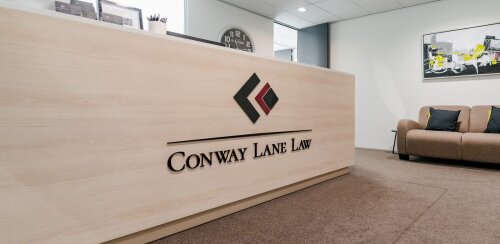Best Housing, Construction & Development Lawyers in Rangiora
Share your needs with us, get contacted by law firms.
Free. Takes 2 min.
Free Guide to Hiring a Real Estate Lawyer
List of the best lawyers in Rangiora, New Zealand
1. About Housing, Construction & Development Law in Rangiora, New Zealand
Housing, Construction and Development law in Rangiora covers the rules for building, land use and development in the Canterbury region. It includes national requirements for building safety, local planning controls, and environmental considerations. In Rangiora, the primary players are the Waimakariri District Council for local consents and the Canterbury Regional Council for regional matters.
National standards are set by the Building Act 2004 and the New Zealand Building Code. Building work generally requires a building consent before starting, and you must obtain code compliance once the work is finished. Developers, homeowners and builders must also comply with planning rules when land use changes or subdivision is involved.
Understanding how these rules interact helps you avoid delays and penalties. A Rangiora solicitor or legal counsel can explain whether your project needs building consent, a resource consent or both, and how to navigate the assessment and inspection processes. This guidance becomes particularly important for complex subdivisions or multi-stage developments.
2. Why You May Need a Lawyer
Planning a new home in Rangiora often involves multiple approvals at different levels of government. A solicitor can review plans for compliance with the Building Act 2004 and the Building Code, and help you prepare accurate consent applications. They can also guide you through design changes suggested by the council to secure faster approvals.
A builder or homeowner facing defects or workmanship disputes needs a lawyer to draft or negotiate contracts, manage retentions, and pursue remedies. A construction lawyer can prepare termination notices, progress claims or defect notices, and work with engineers to document non-conformities.
Subdivision or land development in Rangiora requires careful navigation of the local District Plan and potential resource consents. A lawyer can draft subdivision covenants, access arrangements, and service connections, while coordinating with the council on engineering requirements.
Environmental or resource consent issues may arise if your project involves stormwater, wastewater, discharges, or land disturbance. A legal professional can liaise with the Waimakariri District Council or Environment Canterbury to obtain the necessary consents and address conditions or monitoring obligations. This reduces the risk of enforcement action or costly modifications.
Earthquake prone building considerations or safety orders can trigger urgent planning and remedial work. A lawyer can assess whether a property is subject to earthquake prone building rules, help you negotiate demolition or strengthening programs, and manage any associated compensation or compliance timelines. This is especially relevant in Canterbury where seismic resilience is a current priority.
If the council issues notices or takes enforcement action against your project, a housing and construction solicitor can review notices, advise on compliance steps, and negotiate timeframes or penalties. Having early legal input can prevent costly delays and ensure proper process is followed.
3. Local Laws Overview
The following laws and regulatory frameworks govern housing, construction and development in Rangiora. They interact with local planning controls administered by the Waimakariri District Council and regional rules from Environment Canterbury.
Building Act 2004 and the Building Code establish the requirements for building work, consent applications, inspections and code compliance certificates. Local councils issue building consents and carry out site inspections under this Act, with oversight by the Ministry of Business, Innovation and Employment. It forms the backbone of residential and commercial construction in Rangiora.
Resource Management Act 1991 (and ongoing reforms) governs land use, subdivision and environmental effects. It requires resource consents for activities that affect the environment, such as discharge of contaminants or significant land disturbance. Canterbury councils administer these consents and assess effects on water, air and biodiversity. Recent reforms introduced the Natural and Built Environments Act and Strategic Planning Act as part of the resource management framework, with phased implementation starting in 2023-2024; check current status on official sites.
Health and Safety at Work Act 2015 applies to construction sites and contractors in Rangiora. It sets duties for employers and other parties to manage health and safety risks. Compliance reduces the likelihood of accidents, penalties and project delays. This is an essential consideration for any development or major renovation project.
Local planning also relies on the Waimakariri District Plan and regional policies, which set rules for subdivision, zoning, setbacks and earthworks. Practically, this means you may need both a building consent and a resource consent for a significant project. Always confirm the latest plan rules with the Waimakariri District Council before drawing up plans.
Recent trends include increased emphasis on seismic readiness and stricter oversight of environmental effects in Canterbury. Counsel can help you align project timelines with council expectations, update designs to meet new requirements, and manage costs associated with changes. Keeping on top of changes helps avoid delays and penalties in Rangiora developments.
4. Frequently Asked Questions
What is a building consent and why do I need one in Rangiora?
A building consent is a formal approval to start work on a building project. It ensures plans meet the Building Code and safety standards. Starting work without consent can lead to penalties and orders to stop work.
How do I apply for a building consent in Rangiora?
Apply through the Waimakariri District Council using the council's online portal or forms. You should submit plans, specifications and any required engineering reports. A structural engineer may be needed for critical elements.
When can I start construction after receiving consent?
You can commence once the consent is issued and all conditions are understood. Inspections must be booked at key stages, and you must not proceed beyond approved scopes without variation or new consent.
Where do I lodge a resource consent application in Canterbury?
Resource consents are handled by Environment Canterbury and the local district council. In most cases you apply to the council with supporting environmental assessments and plans.
Why might a council issue a notice to fix on my property?
A notice to fix is issued when work does not comply with the consent, Building Code or plan rules. It requires you to correct issues or face penalties or further enforcement actions.
Can I use a contractor without a formal contract in Rangiora?
While informal arrangements can exist, a written contract reduces disputes. It should cover scope, timelines, payments, defect resolution and liability.
Should I hire a solicitor for a building dispute in Rangiora?
Yes. A solicitor with local experience can help draft notices, negotiate with contractors, and, if needed, prepare for mediation or court action.
Do I need a survey plan for subdivision here?
Subdivision usually requires survey plans and separation of titles. A lawyer can help ensure the plan aligns with district and regional requirements and fees.
Is the Building Code applicable to renovations and extensions?
Yes. The Building Code applies to most substantial renovations and extensions. Depending on the scope, you may need a full or partial consent and inspections.
How much can building consent and inspections cost in Rangiora?
Costs vary with project size, complexity and engineering needs. Typical charges include application fees, plan checks, inspections and potential amendments or re-consents.
What is the difference between a consented and permitted works in NZ law?
Consented works require formal approval before starting. Permitted works may proceed without consent if they meet conditions set by the Building Code and local plans.
5. Additional Resources
- Ministry of Business, Innovation and Employment (MBIE) - Building safety, consent processes and construction standards. Official guidance and forms for building projects in New Zealand. mbie.govt.nz
- NZ Legislation - Official repository of statutes including the Building Act 2004, Resource Management Act 1991 and related regulations. legislation.govt.nz
- New Zealand Parliament - Access to bills, acts, select committee reports and legislative history relevant to housing and development. parliament.nz
6. Next Steps
- Identify your project scope and publish a simple brief with timelines. Do this before contacting a lawyer to ensure focused advice.
- Consult a Rangiora solicitor experienced in Housing, Construction & Development law for an initial assessment. Schedule a 60-minute consultation and obtain a written fee estimate.
- Confirm whether you need building consent, resource consent or both. Have your plans reviewed for compliance with the Building Code and local District Plan.
- Prepare and assemble all documents required for consent applications, including plans, specifications and engineer reports. Your lawyer can help with packaging and submission strategies.
- Submit applications to the Waimakariri District Council and, if needed, Environment Canterbury. Track the application and respond promptly to requests for information.
- Schedule and prepare for inspections at key construction milestones. Obtain all code compliance certificates before finalising the project.
- Review and address any conditions, notices or disputes with the council or contractor. Your solicitor can negotiate timeframes and remedy steps if issues arise.
Lawzana helps you find the best lawyers and law firms in Rangiora through a curated and pre-screened list of qualified legal professionals. Our platform offers rankings and detailed profiles of attorneys and law firms, allowing you to compare based on practice areas, including Housing, Construction & Development, experience, and client feedback.
Each profile includes a description of the firm's areas of practice, client reviews, team members and partners, year of establishment, spoken languages, office locations, contact information, social media presence, and any published articles or resources. Most firms on our platform speak English and are experienced in both local and international legal matters.
Get a quote from top-rated law firms in Rangiora, New Zealand — quickly, securely, and without unnecessary hassle.
Disclaimer:
The information provided on this page is for general informational purposes only and does not constitute legal advice. While we strive to ensure the accuracy and relevance of the content, legal information may change over time, and interpretations of the law can vary. You should always consult with a qualified legal professional for advice specific to your situation.
We disclaim all liability for actions taken or not taken based on the content of this page. If you believe any information is incorrect or outdated, please contact us, and we will review and update it where appropriate.









